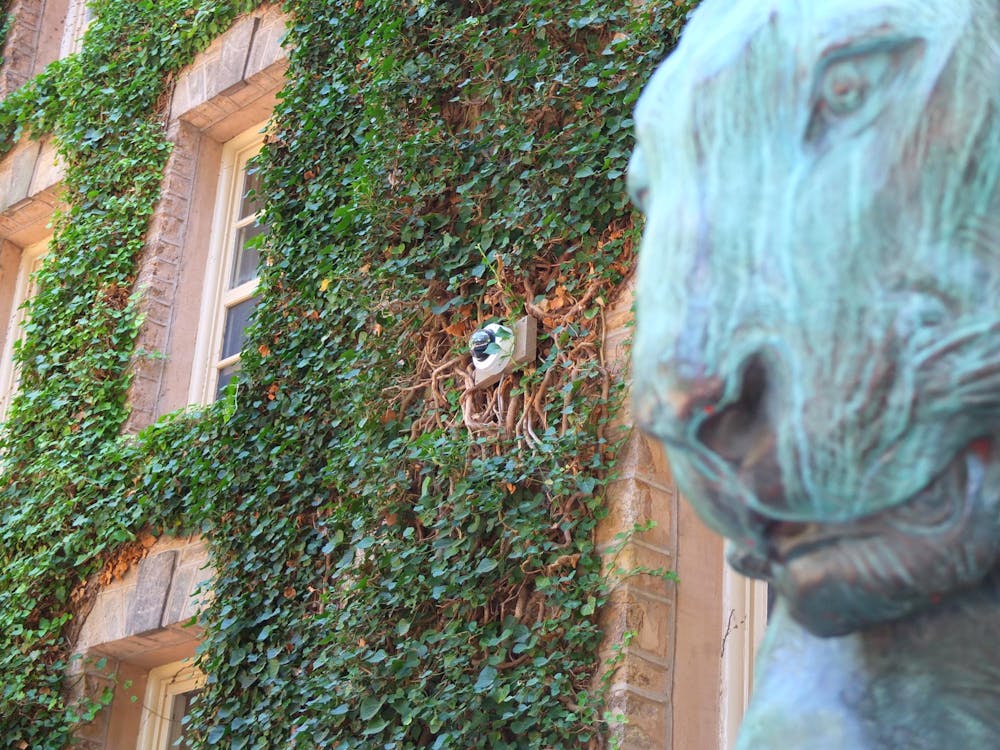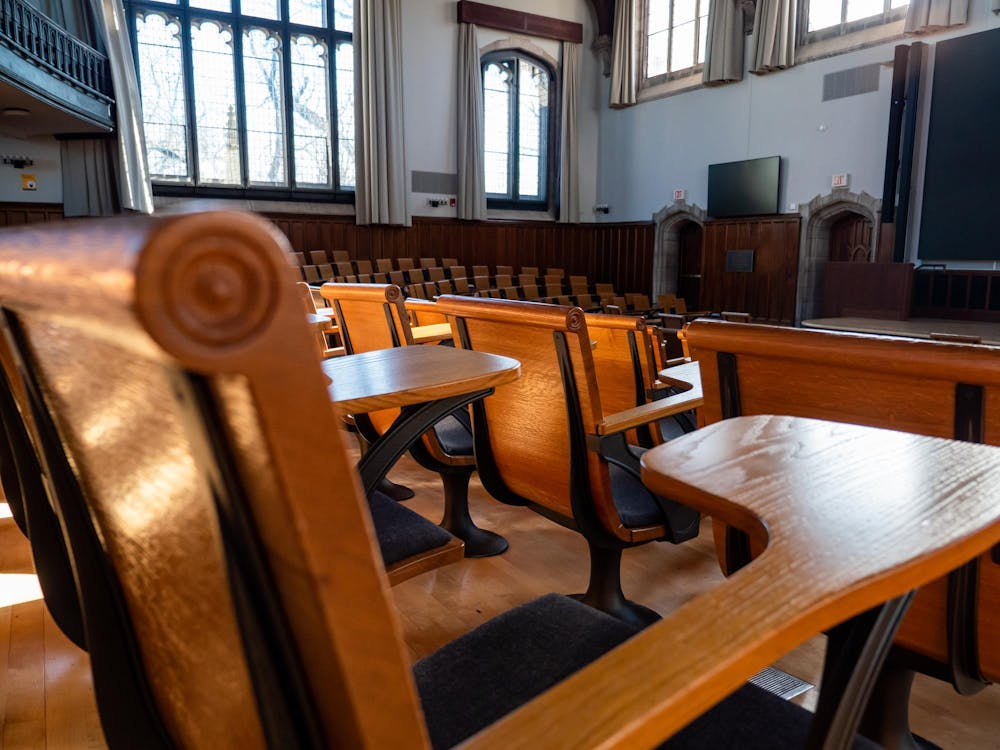In the spring of 2023, the University began a camera expansion project, installing security cameras in hundreds of entryways to residential buildings. At the time, the policy garnered student opposition for its potential to replicate inequities and jeopardize student privacy. But that momentum has faltered.
It’s not hard to see why: Half of the current student population had not yet enrolled when the cameras were announced, and many may not know they exist. But this does not make the invasion of privacy any less severe.
Not only does the University need to inform us about such significant policies, we need to double down on our advocacy for inclusion in conversations that concern our fundamental rights.
The last official University communication about the camera expansion policy was sent to the student body on March 8, 2023 — before the Classes of 2027 and 2028 had matriculated. This means that a significant chunk of the current student body may not be aware that they are being surveilled.
And the University is tight-lipped about that information. I attended an Undergraduate Student Government (USG) meeting in November that featured a presentation by Public Safety’s (PSAFE) Associate Director of Administration Bryant Blount and Community Relations Sergeant Sean Ryder. Blount said that while he was comfortable discussing the camera installation project with members of USG, he didn’t see the need to disseminate this information to the student community more broadly. “This type of thing is not typically broadcast to students,” Blount said. But he didn’t say why not.
When the administration isn’t forthcoming with us about a policy that affects the entire student body, we should be suspicious. Princeton’s lack of communication about the camera initiative suggests a desire to avoid accountability.
Princeton has been distributing unclear and at times contradictory information for years. While the 2023 memo asserts that “the cameras will generally not be monitored in real time,” PSAFE’s Security Camera Recording and Retention Policy stipulates that “cameras may be monitored in real time when safety or security concerns, event monitoring, ongoing investigations, alarms, or other situations warrant such monitoring.”
The policy does not specify what forms of “event monitoring” or investigations would merit real-time surveillance camera monitoring, nor does it establish whether students would be notified if active monitoring were to occur. And given the level of candor we’ve come to expect from the University so far, it’s reasonable to assume that we wouldn’t be informed.

According to Ila Prabhuram ’27, a U-Councilor and activist with Students for Prison Education, Abolition, and Reform (SPEAR), members of USG have asked for this vague language to be amended or clarified multiple times at information sessions that PSAFE held with USG, but their requests have not been honored.
The University has directly contradicted its own camera policy in the past. The memo stated that cameras would be mounted only at “all exterior doorways” of residential buildings and not any other areas “such as restrooms, hallways, private rooms, or residential college lounges,” but that wasn’t the case.
Cameras were installed indoors, including in areas that caught portions of surrounding hallways on video. The University sent no further campus-wide communication addressing this discrepancy. There’s no reason to believe the administration would inform us about any future deviations from policy, especially not those that further infringe on our privacy.
In the USG meeting on Nov. 24, Blount and Ryder emphasized that cameras aren’t installed in areas where “privacy takes precedence.” But this doesn’t ring true to the student experience. One student-designed poster outside a Brown Hall bathroom in Fall 2023 asked if women could use the men’s bathroom because they didn‘t feel comfortable walking past cameras on their way to the women‘s bathroom (pictures of the poster were circulated in a SPEAR group chat). This clearly illustrates that the cameras are interfering with students’ privacy, and that the administration is more than willing to renege on its initial guarantees.

Trust has to be earned. It requires transparency. We deserve to know where we are being recorded. We deserve to know when we are being recorded. And we deserve to know why we are being recorded.
The 2023 memo should be publicly available to all students, including those who were not yet students when it was initially sent out. If, as these contradictions indicate, that memo is no longer reflective of the policy, updates to or expansions of the policy should be published online and emailed to the entire campus community. And additional communication about the camera project should outline a clear, comprehensive rationale for why the cameras were installed in the first place and why they are being placed in new locations that were not previously monitored.
In addition to these steps from the University, it is our responsibility as students to stay informed and demand a seat at the table when it comes to conversations like these that affect our rights to privacy.
We need to push for the creation of working groups (like the one on campus lighting convened by the Environmental Safety and Risk Management Committee) that examine the effects of this policy, and we need to ensure these groups include student, faculty, and staff voices. We need to insist on being informed before cameras are installed in our dorms. We need to pay attention to where we see cameras on campus, especially those that we haven’t noticed before — and we need to take pictures of them, text our friends, and spread the word.
Now, more than ever, we need to be proactive about defending our rights. It’s very likely that a second Trump administration will roll back protections on our civil liberties. This makes it particularly important to be vigilant about privacy restrictions at both the national and local level. We can start on our own campus.
Head Opinion Editor Frances Brogan is a sophomore prospective History major from Lancaster, Pa. She can be reached at frances.brogan[at]princeton.edu.








